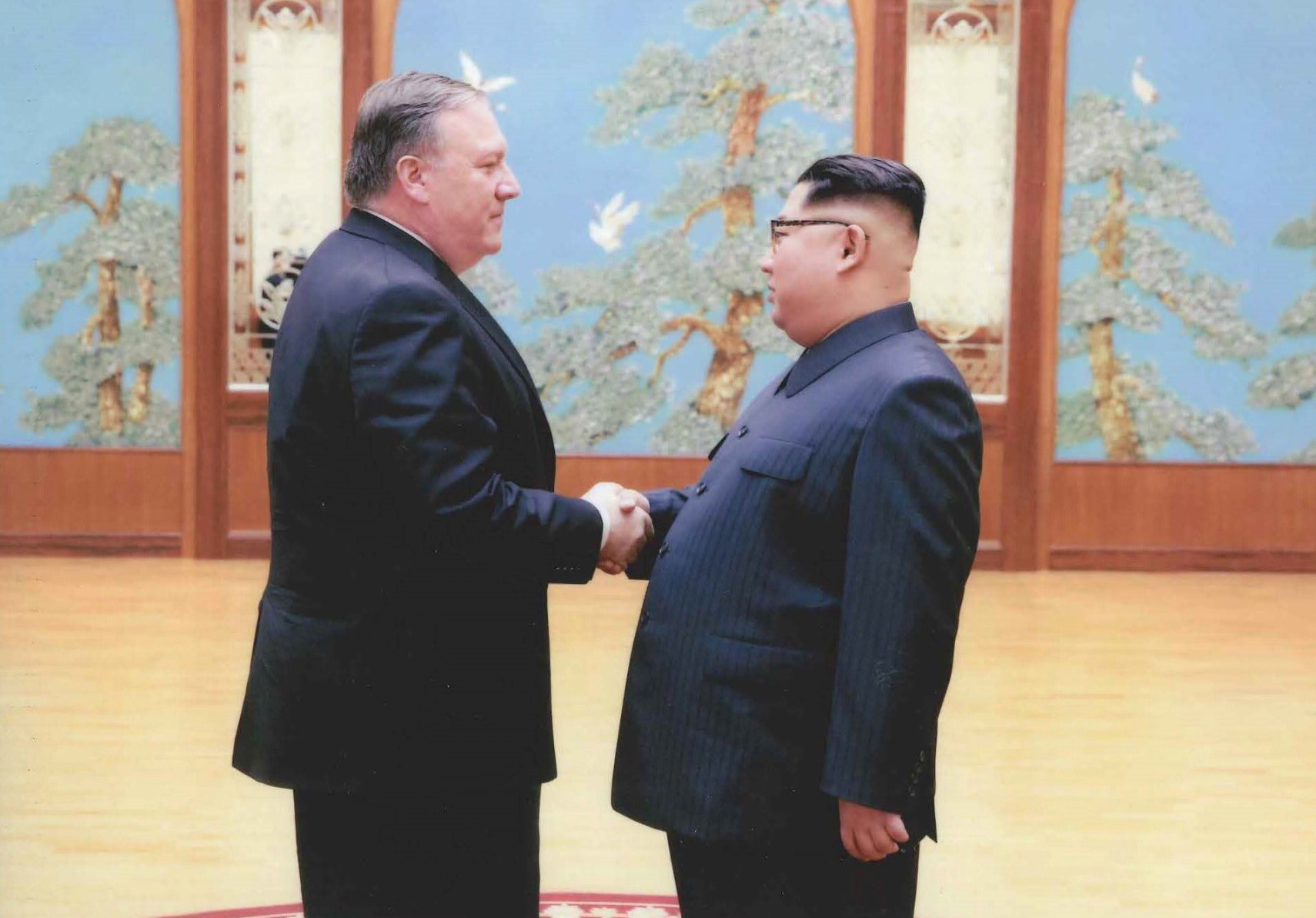Well, this feels familiar. North Korea has nixed talks with South Korea set for Wednesday and threatened to pull out of next month’s summit with the U.S., underscoring the difficulty of negotiating with an ossified Stalinist regime that has clung onto power for seven decades precisely by switching between hostility and engagement with assorted world powers.
North Korea’s state KCNA news agency announced the initial cancellation Tuesday, citing the joint air force drills between Seoul and Washington that it deemed a “provocation” and practice for invasion. North Korea has long railed against U.S.-South Korean military drills, but the move surprised many Korea-watchers as Kim had earlier said negotiations would continue regardless of the exercises.
Meanwhile, a North Korean official separately said Wednesday that the summit between Kim and U.S. President Donald Trump set for June 12 in Singapore would be scrapped if predicated on “one-sided” demands to give up nuclear weapons.
“We are no longer interested in a negotiation that will be all about driving us into a corner,” North Korea’s first vice foreign minister Kim Kye Gwan said Wednesday. “This would force us to reconsider whether we would accept the North Korea-U.S. summit meeting.”
The tenor is markedly different from last month’s meeting between Kim and South Korean President Moon Jae-in, when the North Korean leader promised a “new era” of cooperation. Experts posit Kim may now be trying to drive a wedge between Seoul and Washington. The first vice foreign minister also criticized recent comments by Trump’s hawkish National Security Adviser John Bolton, who has said the North should follow the “Libyan model” of nuclear disarmament via “complete, verifiable and irreversible dismantlement.”
Read More: ‘A Deal Mr. Kim Cannot Refuse.’ North Korean Leader Could Be Offered Regime Security
That Libyan dictator Muammar Gaddafi was toppled with U.S. backing despite acquiescing to demands to denuclearize has long been a thorn in U.S. efforts to reach a deal with North Korea — one likely sharpened by Trump’s recent decision to nix a hard-fought denuclearization deal with Iran.
Professor Stephan Haggard, a Korea expert at the UC San Diego School of Global Policy, says there are two explanations for North Korea’s recalcitrance: “One is that Kim is testing the [Trump] administration and seeing if he can get some concessions. The other is that has he gotten cold feet — they just want an out.”
Either way, the brouhaha spotlights the risks for Trump meeting with the mercurial third generation North Korean leader, who like his illustrious father and grandfather has excelled at brinkmanship — alternating between threats and conciliatory gestures to eke concessions.

The Singapore summit would be the first ever meeting between the leaders of the longtime adversaries, whom do not have diplomatic relations and officially remain at war since only an armistice rather than peace treaty ended the 1950-53 Korean War. Distrust is intense. North Korea has signed five denuclearization agreements in the past but reneged on all.
In the last year, North Korea has tested a nuclear-armed ballistic missile that experts believe can reach the continental U.S., prompting the U.S. president to threaten a military strike and to spearhead three new rounds of U.N. sanctions. Trump’s new foreign policy inner circle of Bolton and Secretary of State Mike Pompeo has repeatedly said that military option remains on the table.
The threat of war increases exponentially if talks fail. However, Christopher Green, a senior analyst on the Korean peninsula for the International Crisis Group, says North Korea’s latest maneuvers are simply designed to create leverage. “I don’t think it benefits North Korea to appear be too much of a cheap date,” he says. “It ill behooves them to have everyone thinking that they are desperate or that they can’t afford to walk away from the talks.”
Which is a tactic Trump — the self-styled master negotiator — should be able to appreciate, since he has himself said that he would “respectfully leave” talks if he didn’t like their direction. Still, the confusion injects doubt into the thought that we are now dealing with a North Korean leader desperate to come in from the cold.
Bruce Klingner, formerly CIA chief in Korea and now an analyst with the conservative-leaning Heritage Foundation, says that he had meetings with South Korean officials on Tuesday that were dominated by fears that Trump, eager to etch his name into the history books, may agree to too much in his talks with Kim. But now they are dealing with the prospect that Kim is stringing the world along just like his forebears.
“In the Soviet context, we thought we were moving from Khrushchev and Brezhnev, with the pounding the table with shoes and ill-fitting suits, to the refined and public relations-effective Gorbachev,” says Klingner. “And now we seem to be going back to the troglodytes of the past.”
More Must-Reads from TIME
- Why Trump’s Message Worked on Latino Men
- What Trump’s Win Could Mean for Housing
- The 100 Must-Read Books of 2024
- Sleep Doctors Share the 1 Tip That’s Changed Their Lives
- Column: Let’s Bring Back Romance
- What It’s Like to Have Long COVID As a Kid
- FX’s Say Nothing Is the Must-Watch Political Thriller of 2024
- Merle Bombardieri Is Helping People Make the Baby Decision
Write to Charlie Campbell / Beijing at charlie.campbell@time.com